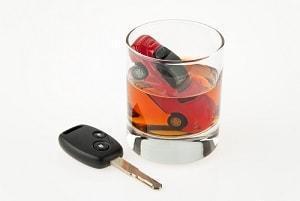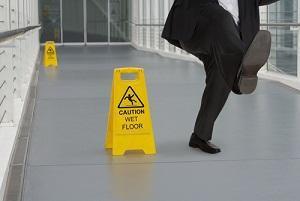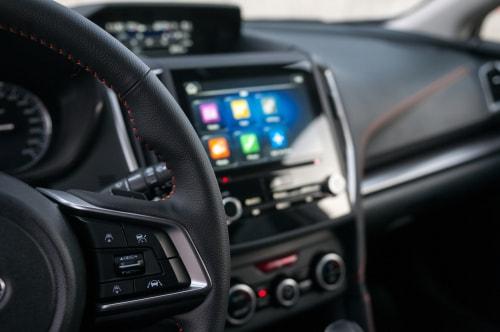Recent Blog Posts
Police Seize Connecticut Man’s Guns After Threats of Suicide
 A former Connecticut police officer was sitting at home minding his own business when five state troopers arrived with a warrant to seize all of his legally-owned firearms. The 76-year-old man had committed no crime, had no history of violence, was not under arrest, and was not being charged, but the state police still seized more than 80 guns from the man’s home pursuant to a Firearm Safety Warrant. Connecticut is one of just five states to allow this type of controversial warrant, though many more are considering them in light of recent tragedies involving gun violence.
A former Connecticut police officer was sitting at home minding his own business when five state troopers arrived with a warrant to seize all of his legally-owned firearms. The 76-year-old man had committed no crime, had no history of violence, was not under arrest, and was not being charged, but the state police still seized more than 80 guns from the man’s home pursuant to a Firearm Safety Warrant. Connecticut is one of just five states to allow this type of controversial warrant, though many more are considering them in light of recent tragedies involving gun violence.
Firearm Safety Warrants
In 1999, the Connecticut Legislature passed what lawmakers called "risk warrant" legislation. The law allows courts to issue firearm seizure warrants based on reports from the general public that a person (gun owner) poses an immediate threat of personal injury to themselves or others. The subject of such a warrant does not need to have broken any laws in order for the seizure to be conducted. The police can hold seized firearms for up to two weeks while a hearing is scheduled. At the hearing, a judge then determines the status of the guns. Some are returned to the owner immediately, others are held for up to one year, and a small number are forfeited and sold or destroyed.
Scientists Push for Lower DUI Legal Limit
 Almost all of us have been affected by drunk driving in some way or another. Some of those reading have gotten into fender benders with someone they suspect was drinking. Others have been seriously injured in car accidents caused by an impaired driver. Still others have friends or family members who have been killed or injured in a car accident involving alcohol. Incidents involving an alcohol-impaired driver cause approximately 10,000 deaths in the U.S each year. Lawmakers have responded to the problem of drunk drivers by imposing serious criminal penalties for those who drive with a blood alcohol content (BAC) over the legal limit. Now, that BAC threshold which determines if someone is breaking the law or not may be lowered.
Almost all of us have been affected by drunk driving in some way or another. Some of those reading have gotten into fender benders with someone they suspect was drinking. Others have been seriously injured in car accidents caused by an impaired driver. Still others have friends or family members who have been killed or injured in a car accident involving alcohol. Incidents involving an alcohol-impaired driver cause approximately 10,000 deaths in the U.S each year. Lawmakers have responded to the problem of drunk drivers by imposing serious criminal penalties for those who drive with a blood alcohol content (BAC) over the legal limit. Now, that BAC threshold which determines if someone is breaking the law or not may be lowered.
Blood Alcohol Content Threshold
A prestigious panel of the National Academics of Sciences, Engineering and Medicine is recommending that states lower the legal limit which determines is someone is charged with driving under the influence (DUI). As it currently stands, all states have a BAC limit of 0.08 percent, although Utah has passed a law which will lower the legal limit beginning December 30. The 489-page report suggests that changing the BAC threshold from 0.08 percent to 0.05 percent would ultimately result in fewer deaths and injuries caused by drunk drivers. A person’s blood alcohol content is determined by several factors, not just how much alcohol they have had to drink. So, this proposed measure would affect drinkers in different ways. For example, a 150-pound man might require two drinks to reach 0.05 percent BAC while it may take a physically smaller person only one drink to reach a BAC of 0.05 percent.
Dual Arrest Rate Prompts Calls for Changes to Connecticut Domestic Violence Laws
 When the police respond to a report of a domestic disturbance, how they handle the situation is determined by a number of factors. Of course, the behavior of and allegations made by the parties involved will contribute to the officer’s decision on whether or not to make an arrest. The applicable laws of the state in question also matter and can vary widely from one state to the next.
When the police respond to a report of a domestic disturbance, how they handle the situation is determined by a number of factors. Of course, the behavior of and allegations made by the parties involved will contribute to the officer’s decision on whether or not to make an arrest. The applicable laws of the state in question also matter and can vary widely from one state to the next.
In Connecticut, an officer is essentially required to make an arrest when responding to a domestic violence call if he or she has probable cause to believe that violent incident took place. Unfortunately, however, the wording of the law—which went into effect in 1987—has had the unintended consequence of raising the rate of dual arrests to more than double the national average. In recent weeks, victims’ advocate groups have renewed calls to amend the state’s laws so that victims will no longer need to fear being arrested when they call the police for help.
Proving Liability in a Slip and Fall Injury Case
 When you enter into or onto another person’s property, the owner of the property is responsible for making sure that you are safe. This does not mean that the property owner is necessarily tasked with protecting you from yourself, but it does mean that the premises must be kept free of hazards that could lead to a slip and fall or a trip and fall. If the owner fails to keep the property safe and you are injured as a result, you may be able to collect compensation under the principles of premises liability.
When you enter into or onto another person’s property, the owner of the property is responsible for making sure that you are safe. This does not mean that the property owner is necessarily tasked with protecting you from yourself, but it does mean that the premises must be kept free of hazards that could lead to a slip and fall or a trip and fall. If the owner fails to keep the property safe and you are injured as a result, you may be able to collect compensation under the principles of premises liability.
Recovering damages after a slip and fall injury will require you—with the help your attorney—to prove four basic elements:
A Duty of Care
The first thing you must prove is that the person or entity from whom you are seeking compensation actually owed you a duty of care. In other words, you must show that the defendant is the owner of the property in question or is otherwise responsible for the condition of the premises. The duty of care owed by a property owner may also depend on your reasons for being on the property. For example, if you were injured in a store during normal business hours, the duty of care owed to you would be greater than if you had broken in late at night.
Closing of Juvenile Prison Creates Uncertain Future Young Offenders
 At the moment, there is just one prison in the entire state of Connecticut for juveniles who commit crimes that are not serious enough for the "adult" court system. That prison, however, is in the process of closing, leaving many wondering what will happen to the juveniles currently being held there and those who commit such offenses in the future.
At the moment, there is just one prison in the entire state of Connecticut for juveniles who commit crimes that are not serious enough for the "adult" court system. That prison, however, is in the process of closing, leaving many wondering what will happen to the juveniles currently being held there and those who commit such offenses in the future.
Secure Facility
The Connecticut Juvenile Training School in Middletown is a high-security correctional facility designed to hold the most troubled boys in the state’s juvenile justice system. The juvenile delinquents committed to the center have not necessarily committed the worst crimes—those offenders are typically transferred to a standard or adult criminal court and prison system, as necessary. Instead, the boys are essentially the most in need of careful supervision, as many are dealing the effects of physical trauma, mental illness, drug abuse, and dysfunctional families.
Textalyzer May Help Find Distracted Drivers, But At What Cost?
 There is no doubt that distracted driving is a deadly problem. In 2015 alone, 3,477 people were killed in car accidents involving a distracted driver, and 391,000 more were injured. Police have increased their efforts to prevent these needless tragedies by catching drivers illegally using their cell phones while driving, In Connecticut, for example, using a hand-held cell phone is a primary offense which means drivers can be pulled over if they are seen texting or holding a phone to their ear while driving. Now, an emerging technology promises to help police find distracted drivers, but many think the technology is superfluous and a serious invasion of privacy.
There is no doubt that distracted driving is a deadly problem. In 2015 alone, 3,477 people were killed in car accidents involving a distracted driver, and 391,000 more were injured. Police have increased their efforts to prevent these needless tragedies by catching drivers illegally using their cell phones while driving, In Connecticut, for example, using a hand-held cell phone is a primary offense which means drivers can be pulled over if they are seen texting or holding a phone to their ear while driving. Now, an emerging technology promises to help police find distracted drivers, but many think the technology is superfluous and a serious invasion of privacy.
The Breathalyzer of Distracted Driving
Textalyzer is a play on the word Breathalyzer and like a breathalyzer, the technology can help police ascertain if distracted driving contributed to an accident. The Textalyzer technology has the ability to analyze data within a person’s cell phone in order to determine whether the phone was used immediately prior to an accident. Bills have been introduced in several states that would authorize law enforcement officers to confiscate a driver’s phone after a crash so they could run the Textalyzer analysis on it. If the driver refuses to hand over their phone for this analysis their license would be automatically suspended – similar to drivers who refuse Breathalyzer tests. If the driver submits to the Textalyzer analysis and it shows that he or she was using the phone prior to a car accident, it can be used as evidence of distracted driving.
Federal Order on Asset Seizure at Odds With State Laws
 When a person is convicted of committing a crime, it is understandable that the government might have interest in seizing proceeds generated by the commission of that crime. For example, if a drug dealer is arrested and convicted, the money he or she made selling drugs can reasonably be seized and kept by law enforcement and other state agencies—with proper reporting, of course. It also reasonable for the state to seize and keep other property that may have been used in the commission of the crime. A good example might be the computer used by a convicted scammer to defraud unsuspecting victims.
When a person is convicted of committing a crime, it is understandable that the government might have interest in seizing proceeds generated by the commission of that crime. For example, if a drug dealer is arrested and convicted, the money he or she made selling drugs can reasonably be seized and kept by law enforcement and other state agencies—with proper reporting, of course. It also reasonable for the state to seize and keep other property that may have been used in the commission of the crime. A good example might be the computer used by a convicted scammer to defraud unsuspecting victims.
For many years, state and federal government agencies had wide discretion to seize assets that were allegedly linked to criminal activity. The problem, however, was that the agencies could—in many cases—keep the assets even if the assets’ owner was never convicted or even charged. The process for getting seized property back was often difficult, time-consuming, and expensive, and many owners simply gave up.
Yale Settles With Student While Other Suit Continues Over Handling of Sexual Assault Claims
 A recent post on this blog talked about concerns that are being raised across the country regarding the application of due process in cases of alleged sex crimes on college campuses. While nobody would suggest that allegations of rape, sexual assault, or other sexual misconduct should be taken lightly, there have been many anecdotal examples of alleged discrimination against those accused of such behavior. One such situation stemmed from allegations made against a Yale student in 2012, and earlier this month, the Ivy League university reached a settlement with the student who says he was wrongfully and unfairly expelled. The settlement comes even as another lawsuit is continuing against Yale over virtually the same issues.
A recent post on this blog talked about concerns that are being raised across the country regarding the application of due process in cases of alleged sex crimes on college campuses. While nobody would suggest that allegations of rape, sexual assault, or other sexual misconduct should be taken lightly, there have been many anecdotal examples of alleged discrimination against those accused of such behavior. One such situation stemmed from allegations made against a Yale student in 2012, and earlier this month, the Ivy League university reached a settlement with the student who says he was wrongfully and unfairly expelled. The settlement comes even as another lawsuit is continuing against Yale over virtually the same issues.
A Complicated Plot
According to several news sources, a young man—identified only as John Doe—was accused of sexual assault in 2012. In the lawsuit, Doe admitted to having a sexual relationship with the accuser but that all activity was consensual. He said that the accuser fabricated sexual assault allegations in an effort to gain control over the school’s Native American Cultural Center. Doe identifies as Lakota Sioux while the accuser identifies as Navajo. The young man and his attorneys indicated that accusations were designed to remove Doe and the center’s director—who also identifies as Lakota Sioux—so that Navajo students could benefit.
Infotainment Systems Linked to Increase in Distracted Driving
 It is amazing to think of how far the technology in cars has come. From Henry Ford’s Model T in 1908 to driverless cars in 2018, car manufacturers are always inventing new ways to use technology to better the driving experience. Vehicles now have the ability to allow drivers to control the car via touch screen. Other vehicles allow drivers to access GPS navigation directions, play music, listen to the radio, and more, all on a screen within the car. About one in three U.S. adults uses "infotainment" systems like these while they while driving. These advances in car technology are meant to make the driving experience more intuitive and efficient, but are these infotainment systems safe?
It is amazing to think of how far the technology in cars has come. From Henry Ford’s Model T in 1908 to driverless cars in 2018, car manufacturers are always inventing new ways to use technology to better the driving experience. Vehicles now have the ability to allow drivers to control the car via touch screen. Other vehicles allow drivers to access GPS navigation directions, play music, listen to the radio, and more, all on a screen within the car. About one in three U.S. adults uses "infotainment" systems like these while they while driving. These advances in car technology are meant to make the driving experience more intuitive and efficient, but are these infotainment systems safe?
Driving Blind
According to a study commissioned by the American Automobile Association (AAA), infotainment systems may be putting drivers, passengers, other motorists, and pedestrians at serious risk. Because infotainment systems take drivers’ eyes and attention off the road and hands off the wheel for potentially dangerous periods of time, they cause drivers to essentially be driving blind. Research from the AAA Foundation for Traffic Safety found that individuals who use in-vehicle technologies like voice-based and touch screen features were dangerously distracted. The average user of infotainment features is visually and mentally distracted for over 40 seconds when using the system to do things like program navigation, find a radio station, or send a text message. The risk of getting into a car accident doubles by drivers taking their eyes off the road for only 2 seconds, and infotainment users are distracted for 20 times that long!
Sex Crime Allegations Raise Concerns About Due Process On and Off Campus
 It is virtually impossible right now to browse news stories without coming across another report of a high-profile individual accused of rape, sexual assault, or other sexual misconduct. Of course, sexual misbehavior is not a new problem, but recent months have seen an explosion of new allegations against movie producers, actors, comedians, and other influential people. Almost none of these cases have seen the inside of a courtroom yet—or even a formal filing—but careers have already been ruined, and lives have been turned upside down. Alleged offenders are being found guilty in the court of public opinion, with little regard for the nuances of each situation.
It is virtually impossible right now to browse news stories without coming across another report of a high-profile individual accused of rape, sexual assault, or other sexual misconduct. Of course, sexual misbehavior is not a new problem, but recent months have seen an explosion of new allegations against movie producers, actors, comedians, and other influential people. Almost none of these cases have seen the inside of a courtroom yet—or even a formal filing—but careers have already been ruined, and lives have been turned upside down. Alleged offenders are being found guilty in the court of public opinion, with little regard for the nuances of each situation.
Unfortunately, concerns about the lack of due process are not limited to accusations of misconduct by prominent individuals. Over the last few years, the issue has presented itself on college campuses across the country. Students—male students, mostly—have found themselves suspended, expelled, and generally excoriated solely on the basis of allegations of sexual misconduct.






